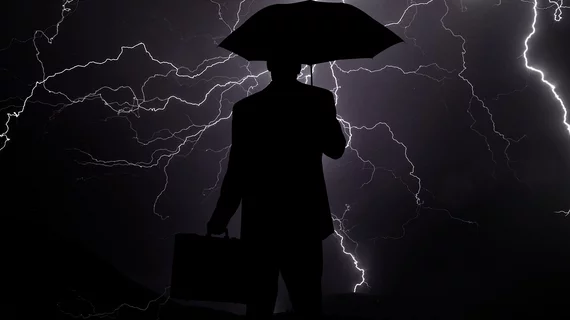50% of radiology practices plan to reduce staffing if ‘catastrophic’ Medicare cuts move forward in 2021
More than 50% 0f radiology practices plan to terminate or furlough existing employees if Congress fails to act soon, advocates said this week.
Another 82% said they expect Medicare cuts slated to take effect Jan. 1 will result in decreased imaging access for patients, while nearly 68% said they’ll delay hiring new physicians. The Radiology Business Management Association highlighted some of these findings from an “extensive” survey of its members, shared Oct. 3 in a letter to the Centers for Medicare and Medicaid Services.
RBMA and others are intensifying pressure this month, hoping to avert some $450 million in anticipated cuts to diagnostic radiology next year. In a balanced-budget world, the reductions are needed to offset corresponding pay increases in primary care and other specialties, experts say. And imaging advocacy groups want Congress to waive budget-neutrality requirements, given the current economic climate.
“The RBMA expresses our extreme concern over CMS’ proposed revaluation of the evaluation and management coding that will greatly hinder the ability of radiology physician groups throughout the country to deliver high quality and timely diagnostic testing to Medicare participants,” RBMA leaders wrote Saturday. “We see increased issues with access and a potential reduction in the timely diagnosis and treatment of major illnesses. Coupled with the reduction in revenues due to the COVID-19 pandemic these cuts may become catastrophic.”
The Fairfax, Virginia-based trade group polled 155 imaging practices online between late August and early September for the survey. Respondents represented 40 of the 50 states, in hospital-based practices and freestanding imaging centers, large and small.
Here’s a quick look at some of the other findings:
- 30% said they’ll offer early retirement options to physicians, if the Medicare cuts move forward.
- 66% said they’ll restructure doc salaries and bonuses.
- 70% would reduce or restructure operating overhead, including benefits, ancillary staffing levels and outsourced business services.
- 64% would delay equipment purchases and replacements.
- 34% would close or reduce hours at their imaging centers, while 51% would restrict services to Medicare beneficiaries treated in an outpatient setting.
And while these cuts only pertain to the federal payment program for seniors, RBMA also cautioned that they’d have a spillover effect on other care. A whopping 82% of respondents said they have commercial payer contracts linked to Medicare, and both Tricare and many Medicaid plans also tie reimbursement to Medicare rates.
“Quite simply, as Medicare reimbursement drops so do private commercial and other government and private payer reimbursements. These negative changes will most significantly affect general, small, emergency and rural centers, further widening the clinical care disparity gap for underserved populations,” RBMA President Linda Wilgus and Executive Director Robert Still wrote.

